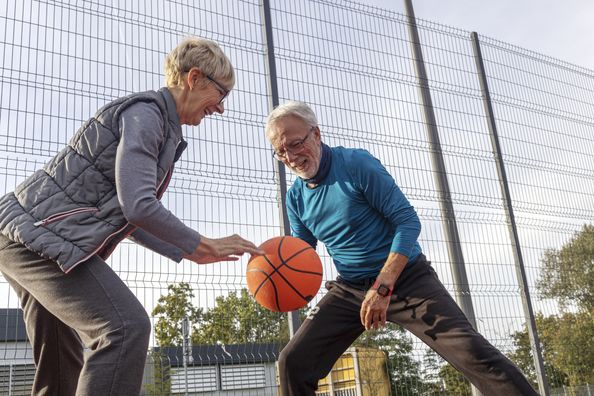The life of a college or high school athlete isn’t always an easy one. You may face the challenge of balancing school, practice, work, and friends. You may find yourself working hard to take care of your physical and mental health every day.
But high school and college sports can also be rewarding. You might daydream about National Signing Day when you choose a hat and the crowd goes wild.
With big dreams can come big pressure, which can lead to playing through pain or injuries on game day. But when is pushing through okay, and when should you give your body a break — even if it means sitting on the bench?
Here’s how to know when to step up and when to rest up.
Common Athletic Injuries
Different sports come with different injuries, but there are some injuries that tend to be common across different sports.
Common Sports Injuries
- Knee injuries — like a torn ACL or runner’s knee
- Ankle injuries — like Achilles tendinitis or ankle sprain
- Shoulder injuries — like rotator cuff tear or dislocation
- Bone injuries — like fractures or broken bones
While there are quite a few different types of injuries, they can generally be sorted into two major categories: Chronic injuries and acute injuries.
Chronic injuries (also called overuse injuries) tend to happen over time. For example, if you are a baseball pitcher, you repeat the same motion of throwing the ball over and over again. This overuse can lead to a chronic injury.
Acute injuries, on the other hand, happen all of a sudden and all at once — like if you land wrong on a jump shot and break your ankle while playing basketball.
Both kinds of injuries can impact your gameplay. Listen to what your body is saying during a game or practice to both recognize — and prevent — injuries.
Knowing When to Play — And When to Sit This One Out
Some soreness after playing or exercising is normal. But injuries and pain are different from regular soreness — and can affect when you should play or return to play.
With an acute injury like a broken arm, it might be easier to know when you can and can’t play (the cast is probably a pretty big hint). But with a chronic or overuse injury, you may experience soreness or some pain for a while before it becomes too painful to play.
You can take steps to prevent or minimize soreness and injury by making sure you have gear that fits and taking the time to warm up and also cool down. But sometimes, taking the right steps to prevent injuries is not enough, and you might find yourself wondering if your pain is enough to contact your doctor.
It’s time to sit out and call your Duly care provider if your pain is:
- In one specific part of your body (and is getting worse)
- Constant and doesn’t go away
- Not improving with heat, ice, rest, or medication
- Causing you to limp or have trouble walking
- Accompanied by joint swelling
- Getting in the way of daily activities, sleep, or practice
- Undiagnosed, or you’re not sure what’s causing it
At Duly, our care starts with providers who will assess your condition to create the best care plan for you. Your care plan will be made in collaboration with our full orthopaedics team and might include non-surgical or surgical pain management and rehabilitation options.
Playing Safer, Healthier, and Longer
As an athlete, you may be used to playing a game even if you’re in pain. Many movies, TV shows, and great sports legends feature athletes who win it all — at the expense of their own health or well-being.
While playing through pain is tempting, unchecked injuries can lead to lifelong damage and health issues. If you find yourself asking, “Should I play this one?” before every game, then your pain might be more serious than you think.
While it might feel like you’re letting your team or fans down by not playing a game, taking care of your body means you’ll be able to play more games in the long run. Protecting your health is what makes you a real MVP.
No one knows your body better than you do, and if something’s not right, talk to a Duly Sports Medicine Orthopaedic Provider early. They can talk with you about your concerns to assess your condition and coordinate your care with other specialists to prevent small issues from becoming big health concerns and keep you on the field.
Health Topics:








